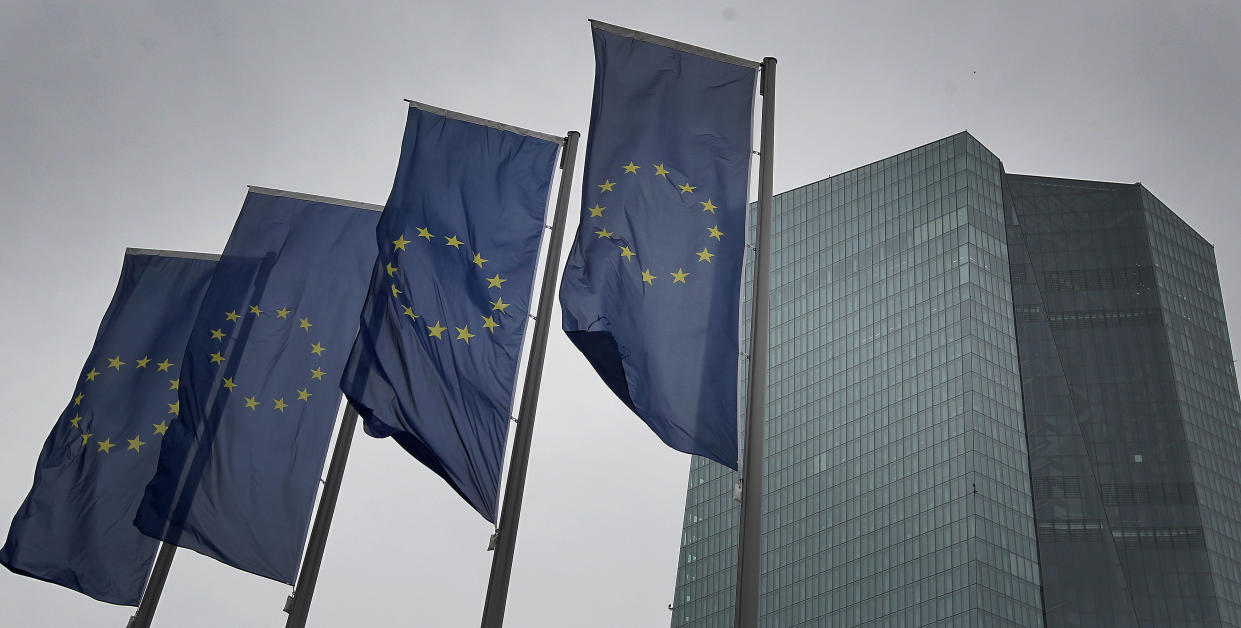Coronavirus pushes eurozone to largest plunge in business activity ever

Business activity in the eurozone plunged at the fastest pace ever in March, as the 19-member common currency area contended with the spiralling impacts of the coronavirus pandemic.
A closely watched survey by IHS Markit found that the economy suffered an unprecedented collapse in activity, with the sector’s purchasing managers’ index reading coming in at 31.4, far below analyst expectations.
PMIs are an indicator of private sector activity and are given on a scale of 1 to 100. Anything above 50 signals growth, while anything below means contraction.
Read more: European stocks rebound as UK goes into coronavirus lockdown
The contraction in March is larger than that seen during the peak of the financial crisis, which saw the index hit 36.2 in February 2009.
The bloc’s services sector was “especially hard hit,” IHS Markit said, pointing to the fallout for consumer-facing industries such as travel, tourism, and restaurants.
Business activity in the services sector fell to 28.4 from 52.6 in February — the lowest reading ever recorded.
“Business activity across the eurozone collapsed in March to an extent far exceeding that seen even at the height of the global financial crisis,” said Chris Williamson, chief business economist at IHS Markit.
“Steep downturns were seen in France, Germany and across the rest of the euro area as governments took increasingly tough measures to contain the spread of the coronavirus.”
The manufacturing sector, meanwhile, saw its largest monthly contraction since April 2009, with factory output dropping around nine points in February, from 48.7 to 39.5.
March saw widespread supply chain disruptions, with the fall in supply being accompanied by a sharp fall in prices, as companies offered discounts to boost sales and reduce inventories.
Read more: Travel insurers expect to pay out record £275m for coronavirus-related claims
Average rates charged in the services sector fell at the steepest pace since January 2010, meaning that the average prices charged for goods and services in the eurozone fell for the first time since August 2016.
Across both sectors, inflows of new business fell at the sharpest pace ever, with IHS Markit pointing to a record fall in export business. Goods orders suffered their largest decline since April 2009.
March also saw the largest monthly cull in staff since July 2009, as firms in the services and manufacturing sectors looked to slash their payroll.
“Demand for many goods and services has fallen dramatically, while near-record supply chain delays have stymied production and business closures mean an increasingly large proportion of the economy is being mothballed,” said Williamson.


